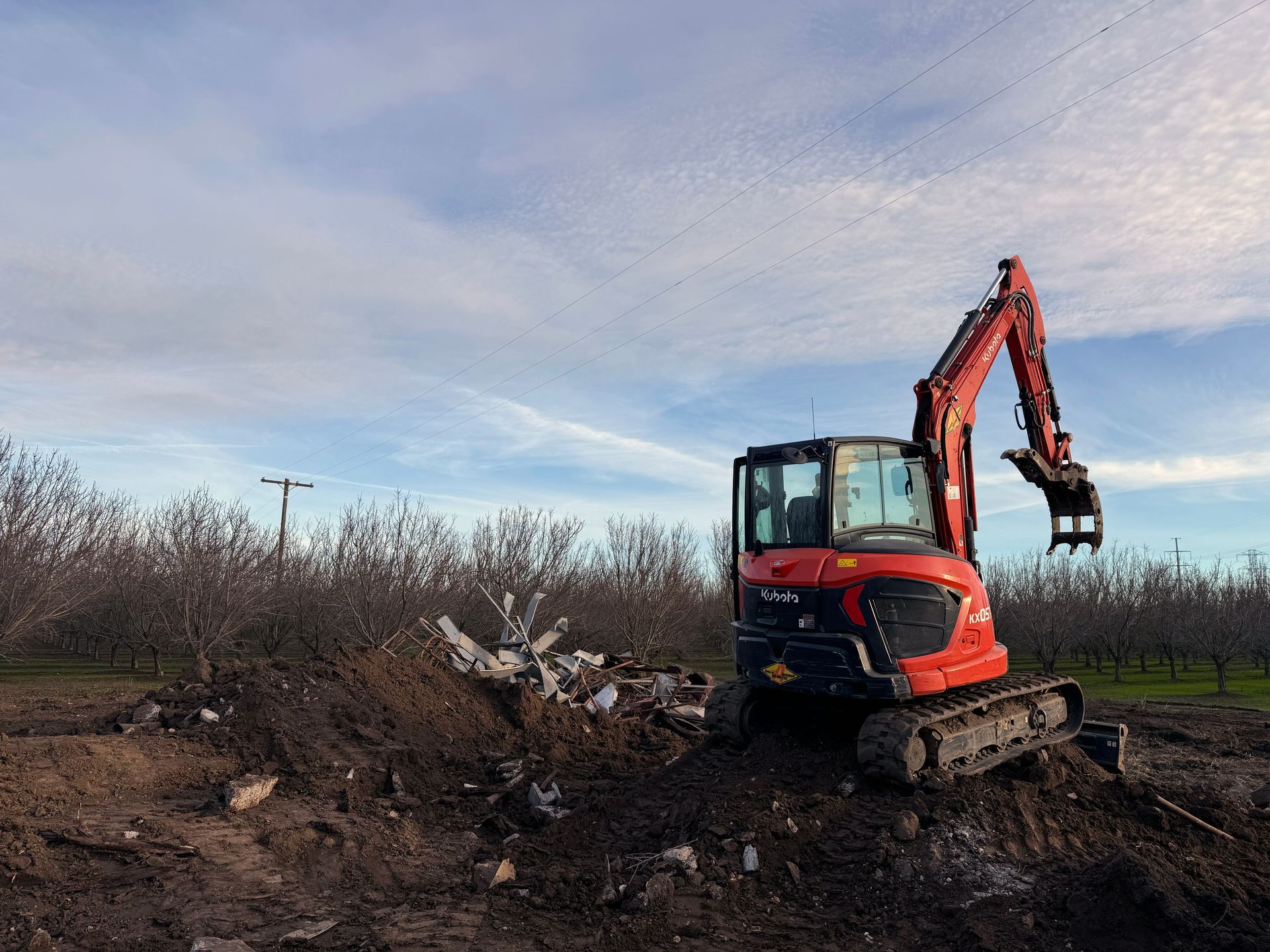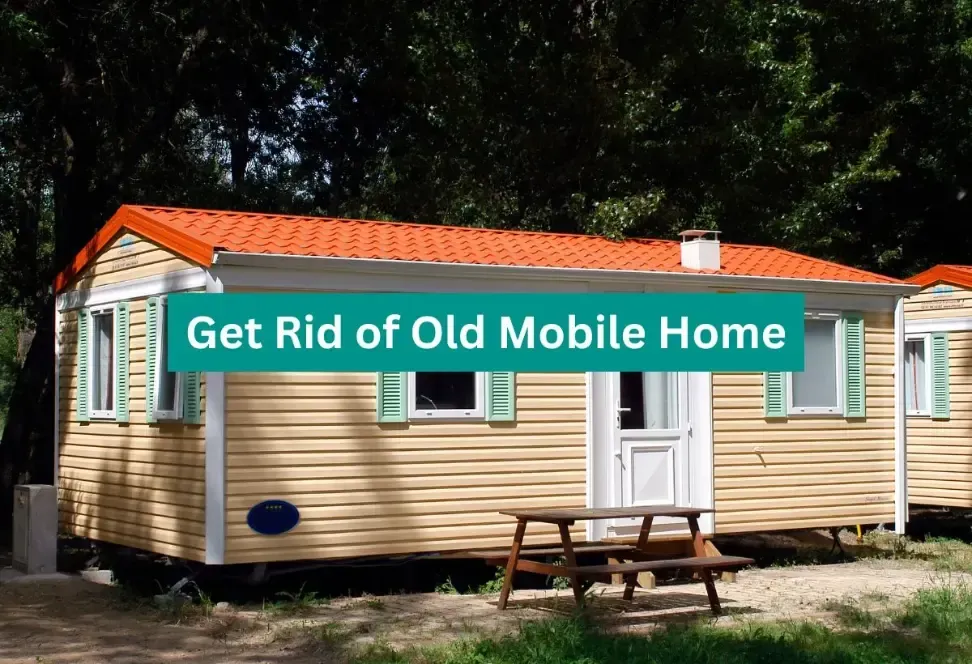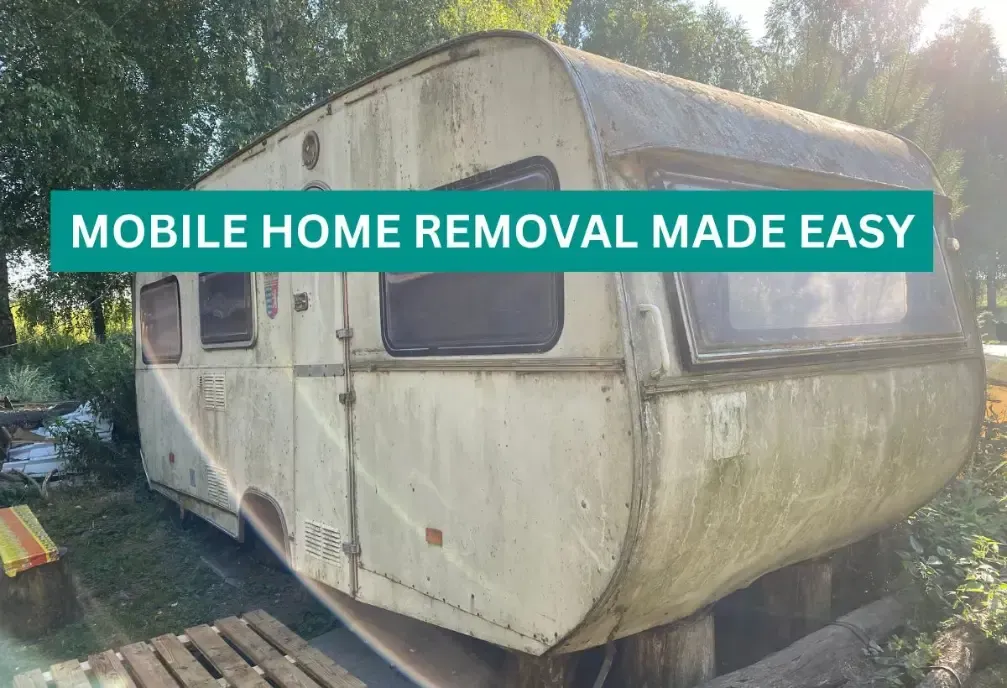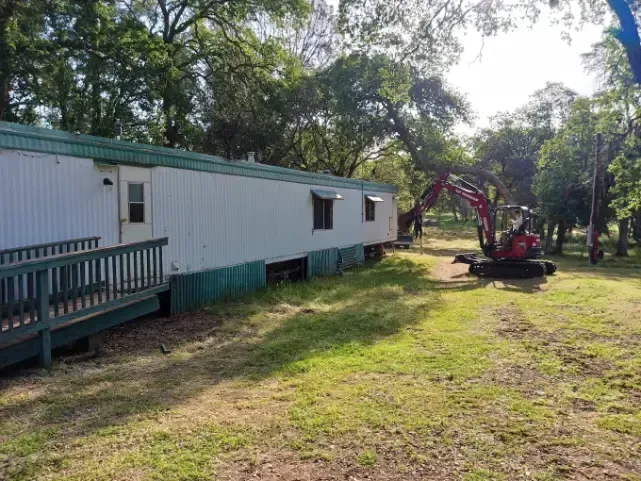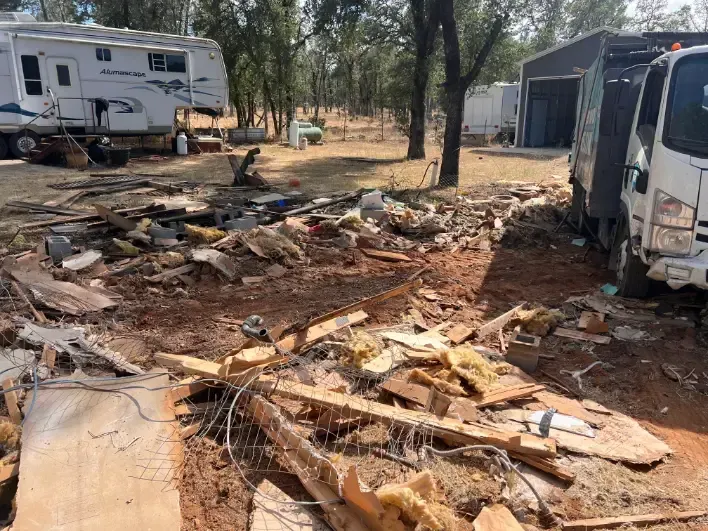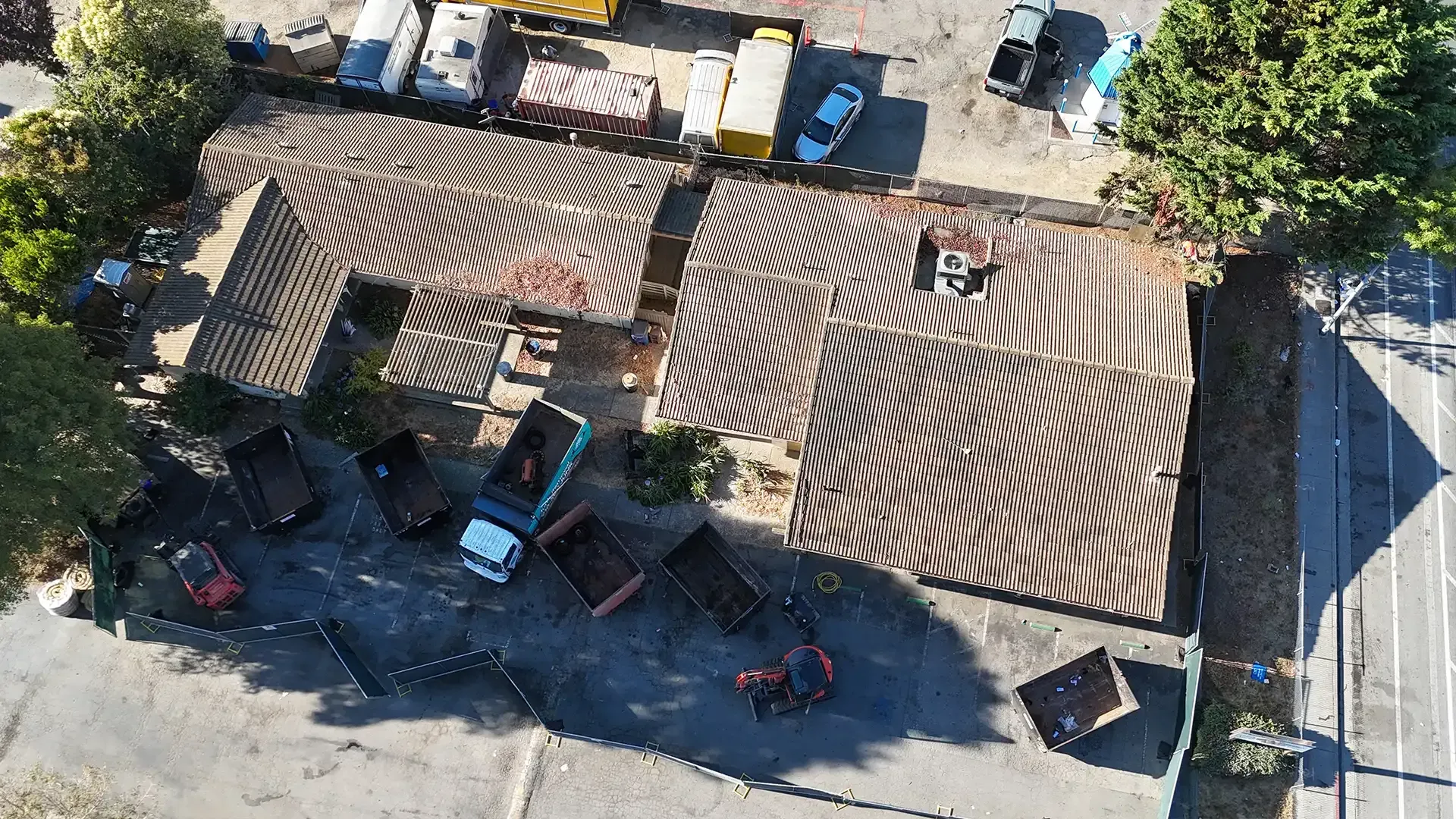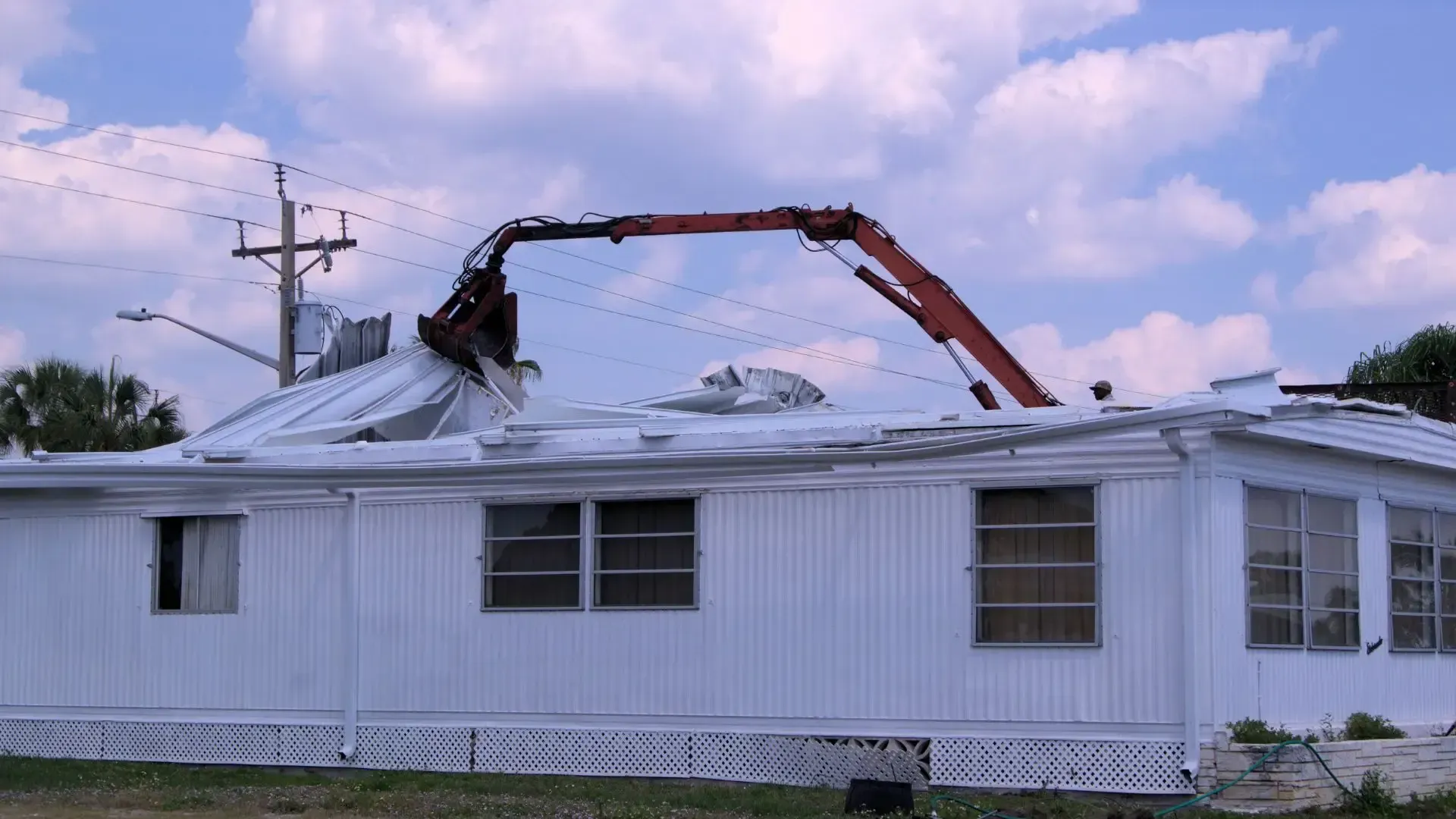Do you Need Permits for Your Demolition Project?
Whether you're tearing down a small shed in your backyard, or demolishing a three story apartment building, the question of permits and how they work must come up. In this article we will discuss some of the different types of permits, the factors that go into needing them, and how to obtain them!
Understanding Permits for Demolition Projects
What are Permits?
Permits are official documents issued by local government bodies that grant permission to proceed with specific types of construction or demolition work. They ensure that projects adhere to building codes, safety regulations, and zoning laws, which are designed to protect public safety, maintain property values, and ensure environmental compliance. Permits cover a range of activities from constructing new buildings to altering, repairing, or demolishing existing structures.
At their core, they're a way for the local county and city governments to produce revenue, be informed about what is happening in their jurisdiction, and apply uniform safety measures to ensure less accidents and better preparation for when its time to build on the land.
With a permit in hand, you can rest easy knowing your project won't be stopped with a nosey neighbor calling the city on you, and you can feel assured knowing the contractor knows exactly what type of safety measures and job site standards to maintain.
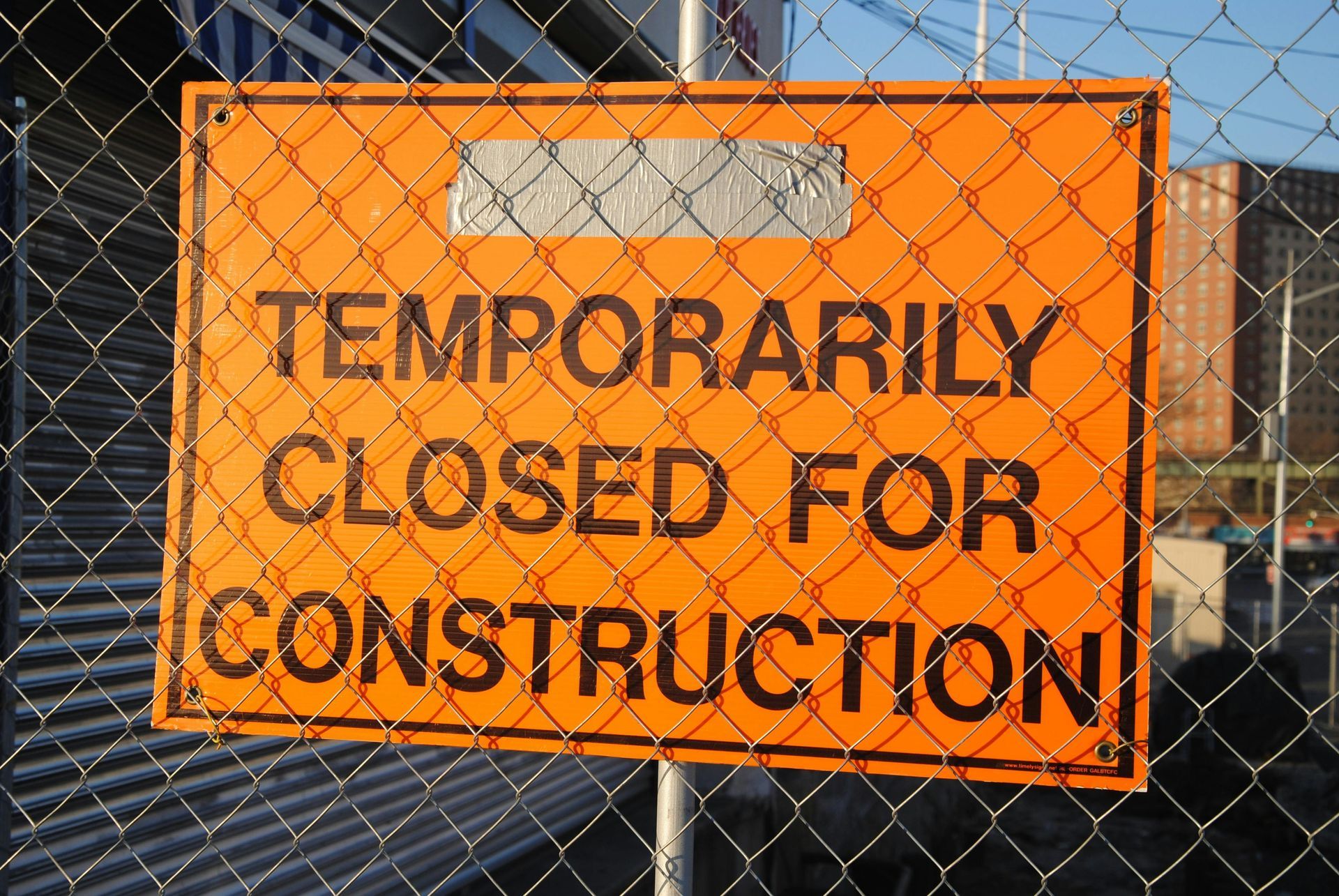
Understanding Permit Types
When you head down to the building department, you may be overwhelmed with all the different types of permits they offer. It's important to understand what type of project you're doing and therefore what type of permits you'll need. We have included a few permit types here.
Building Permit
A building permit is an official approval issued by a local government or municipality that allows you to proceed with construction, renovation, or demolition on your property. It ensures that the planned work complies with zoning regulations, building codes, and other local laws. These regulations are designed to protect public safety, health, and welfare by ensuring that constructions are safe, accessible, and environmentally sound.
Obtaining a building permit involves submitting detailed plans of the proposed project to the local building department. These plans are reviewed for adherence to local codes which cover aspects like structural integrity, electrical systems, plumbing, and fire safety. The permit process can vary significantly depending on the location and the scale of the project, with larger or more complex projects often requiring more extensive reviews and potentially more permits. Failure to secure the necessary permits can lead to fines, legal actions, or the requirement to undo completed work.
If your demolition is part of a larger project that includes construction, you might not need a separate demolition permit but rather include the demolition in your building permit. This is often the case when you're removing parts of a building for renovation or if you're demolishing an accessory structure like a garage as part of a home remodel. You'll want to make sure you do not submit a demolition permit if you have already included the demolition in the Building Permit package as this can lead to stalls in your permit being issued and could have you paying extra fees for no reason!
Specialty Permits
Depending on what kind of project you're doing and the age of the structure you're working on, you may need specialty permits.
Asbestos Abatement Permits: Asbestos removal requires a specialty permit due to the severe health risks associated with asbestos exposure. These permits are regulated by both federal and state agencies to ensure safe handling and disposal of asbestos-containing materials (ACM). Before any renovation or demolition that might disturb asbestos, an asbestos survey is mandatory to identify and quantify ACM. The permit application process typically involves submitting a detailed plan of the abatement procedure, including the method of containment, disposal plans, and the qualifications of the asbestos abatement contractors. Regulations often mandate a notification period—usually 10 working days—before work can begin, allowing time for regulatory review. This ensures that all work practices minimize fiber release into the environment, protecting workers and the public from potential health hazards like lung cancer and mesothelioma. In California depending on what county, buildings built in 1979 or earlier may be required by the county to pass Asbestos testing before building or demolition permits can be issued.
Environmental Permits: Environmental permits are crucial for activities that could impact natural resources or the environment, such as construction, land development, or industrial operations. These permits address issues like air quality, water discharge, waste management, and habitat preservation. For instance, projects near sensitive areas might require permits for stormwater management to prevent erosion or contamination of water bodies. The permitting process involves demonstrating compliance with environmental laws, often necessitating environmental impact assessments or studies to evaluate potential effects on local ecosystems. Regulatory bodies at both state and federal levels, like the Environmental Protection Agency (EPA) or regional equivalents, oversee these permits to ensure that projects adhere to environmental standards, promoting sustainability and minimizing ecological damage.
Utility Disconnect Permits: Utility disconnect permits are required when temporary or permanent disconnection of utilities like electricity, gas, water, or sewage is needed for construction, renovation, or safety reasons. These permits are overseen by utility companies or local government agencies to ensure that disconnections are performed safely and do not adversely affect neighboring properties or public infrastructure. The process usually involves submitting a request or application to the utility provider, detailing the scope of work, the duration of the disconnection, and safety measures to be in place during the work. This permit helps coordinate with utility providers to schedule disconnections at times that minimize disruption to the community. It also ensures that all reconnections are done according to safety standards, preventing hazards like gas leaks or electrical shorts after the work is completed.
Usually you will discover if you need a speciality permit during the regular building permit submittal process. If you ever get stuck or have any questions, don't hesitate to reach out!

Do I need a Permit for my Demolition Project?
Whether or not you need a permit for your demolition project largely on a few things. The scope of the project, Location, and structure type. Each state, county, city will all have their own rules and regulations regarding permits. For example, in Sacramento, CA a demolition permit is necessary for any building or structure on private property unless it's a very minor project like removing a small shed without utilities such as gas, electric, or water hookups.
As a general rule, if you live in California ( most of our customers do ), you most likely need a permit for your demolition. Especially if the building or structure is over 200 square feet and has electrical lines, sewage lines, gas lines, or any other utility.
Permits will also be needed depending on the scope of your project. For example, if you are planning on demolishing a Mobile Home in Butte County that is connected to a septic tank, the county may require a Septic Tank Demolition Permit be issued prior to work starting. Some counties and cities allow you to simple cap the sewage off and leave the tank buried. To find out specifics always talk to the building department and find out directly from them what requirements your project may face.
How to Obtain Permits for your Demolition Project
Licensing provides an important seal of approval from regulatory bodies, showing that your demolition contractor meets specific industry standards while understanding all the complexities of demolition work, such as safety, waste disposal, and environmental impact. This is especially essential in mobile home demolition due to its unique construction and materials involved.
Check Local Regulations: Start by visiting your local building department's website or office to familiarize yourself with the specific requirements for a demolition permit. Each municipality might have unique rules or additional steps, so understanding these early on can prevent delays. Look for information on the necessary steps, timelines, and any special conditions or ordinances that might apply to your property or the type of structure you plan to demolish.
Gather Documentation: You'll need to collect a variety of documents for your application. This typically includes a completed permit application form, which can often be found online or at the municipal office. You should also prepare a detailed site plan that clearly shows the structure targeted for demolition. Additionally, gather confirmations from utility companies that services like gas, electric, and water have been safely disconnected. If your project involves ground disturbance, plans for erosion control or tree preservation might also be required to comply with local environmental regulations.
Pay Fees: The cost of a demolition permit can vary significantly, commonly ranging from $200 to $600. The exact fee depends on factors such as the complexity of the project, the size of the structure, and the specific requirements of your city or county. These fees help cover the administrative costs of permit processing and the inspections that follow. Make sure to check the local fee schedule to budget appropriately for this expense.
Submit Application and Await Inspections: Once your documentation is ready, submit your demolition permit application. While many municipalities now offer the convenience of applying online, some might still require an in-person submission. After your application is filed, expect a series of inspections. These are conducted before, during, and after the demolition to ensure that all work is done safely, complies with local regulations, and doesn't harm the environment or neighboring properties. Be prepared to schedule and accommodate these inspections as part of the demolition process.
Have any Questions Regarding Permits?
Contact us at
Demo Patrol today! With our expertise, commitment to safety, and dedicated customer service, we're here to ensure your demolition process is smooth and successful. Don't wait—reach out to us now at 916-409-6879 or
fill out the form here to get started on paving the way for your plans!

